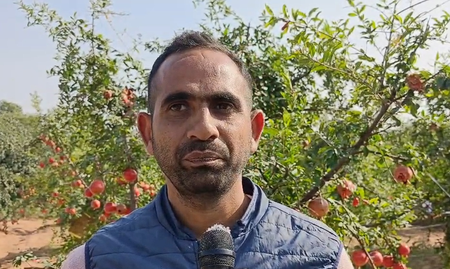
Chennai, April 15 (IANS) Even though higher food prices resulted in the Wholesale Price Index (WPI) inflation rising to 0.53 per cent in March, a positive outlook for agricultural production and food inflation can be expected, said a top economist at CARE Ratings.
However, Rajani Sinha, Chief Economist at CARE Ratings, said that WPI inflation will edge up in the upcoming months.
The Ministry of Commerce & Industry said on Monday that WPI inflation for March went up by 0.53 per cent as compared to the previous year’s corresponding month.
“The positive rate of inflation in March is primarily due to the increase in prices of food articles, electricity, crude and natural gas, machinery and equipment, among others” the Ministry said.
“In line with the expectations, WPI inflation rose to 0.53 per cent in March, continuing in the positive territory for the fifth consecutive month. While both fuel and power and manufactured product categories continued in deflation, an uptick in food price inflation led to a higher overall print,” said Sinha.
“With the fading of a supportive base, it is anticipated that the WPI inflation will edge up in the upcoming months. The recent increase in global commodity prices, particularly driven by higher Brent crude prices and a rise in industrial metal prices, is expected to add to the upward pressures on WPI,” she added.
According to Sinha, the expectations of a normal monsoon with waning of El Nino-like conditions and a recovery in rabi sowing paint a positive outlook for agricultural production and, consequently, food inflation.
This is anticipated to cushion the WPI prints to a certain extent. Nonetheless, geopolitical tensions in the Middle East remain significant variables to be monitored closely.
“We expect WPI inflation to average around 3 per cent in FY25,” Sinha said.
Commenting on the WPI inflation numbers, Sonal Badhan, Economist, Bank of Baroda, said in March, the build-up was visible across all three major sub-heads — food, fuel, and manufactured products.
“Food inflation accelerated to 4.6 per cent from 4.1 per cent in February 2024. Within food, the built-up in pressure was on account of cereals (both wheat and paddy), vegetables, fruits, and other items. Within cereals, inflation for pulses eased slightly but remained at elevated levels,” Badhan said.
Within vegetables, onion and potato inflation inched up sharply, while fuel and power inflation fell at a slower pace owing to a jump in the electricity price index, and a slower rate of deflation in the mineral oil index.
“Manufactured inflation also picked up, led by an increase in basic metals. International commodity prices are showing signs of increased pressure. Going ahead, continued escalation in international crude oil prices, heat wave conditions impacting electricity demand, and vegetable inflation, remain key causes of concern,” Badhan said.
–IANS
vj/arm




